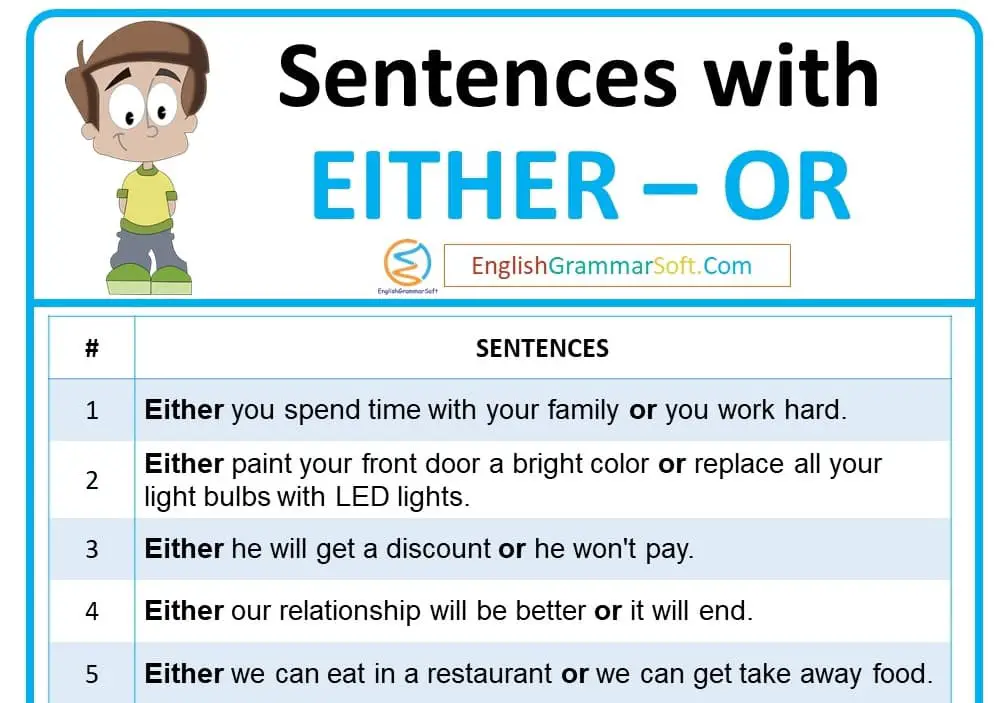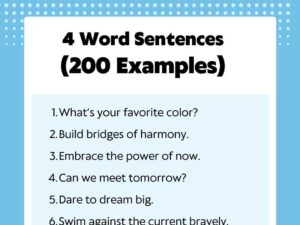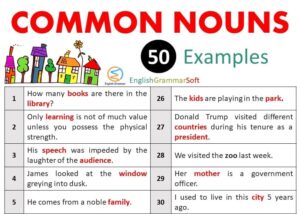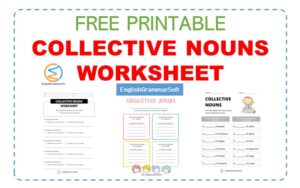Sentences with Either – or | Either or fallacy
You can use either – or to talk about something that is true in all possible ways. Both of these are correct. It’s important to note that either – or does not always result in faulty reasoning, but it can if used incorrectly.
We have written 50 example sentences with either -or.
Sentences with Either – or
- Either you spend time with your family or you work hard.
- Either paint your front door a bright color or replace all your light bulbs with LED lights.
- Either he will get a discount or he won’t pay.
- Either our relationship will be better or it will end.
- Either we can eat in a restaurant or we can get take away food.
- Either they will order from us or buy from our competitor.
- Either I will stay home or I’ll go out.
- Either you do it now or you will regret it later.
- Either we make it better or we make it worse.
- Either we take the chance or we look back in regret.
- You can have either vegetables or the salad.
- I’m not either going out for dinner or watching a movie.
- I’m not either seeing that film or reading a book tonight.
- Either take a shower now or get ready for bed later.
- Either I’ll go on the trip or I’ll stay home.
- You can either take the train or the bus.
- Either you walk or I will drive.
- Either you listen to me or I’ll call the police.
- Has either John or Karen called yet?
- He either ate too much or did not exercise.
- Either return the product or ask for a refund.
- The customer had to choose either the green or yellow pen.
- She either read the news or played games every day.
- The client can’t decide either on the red or black envelope.
- I can either make chili or spaghetti for dinner tonight.
- A hardworking woman either marries a rich man or is miserable.
- A gingerbread man was either sweet or not.
- Either your boyfriend works or you’re going to the prom with me.
- Either you call me back or I’m going to stop showing up at work unexpectedly.
- My dog either wandered off or got run over by a car.
- Either your little brother loves me or he’s setting me.
- Either you are a student or not.
- Either get rid of clutter around the house or clean up after yourself.
- Either they will like me or not.
- You either take the bus to work or drive yourself there.
- I either drink water before bedtime or after dinner.
- Either it’s raining outside or the sun is shining.
- You either have to go to work today or call in sick.
- You either want ice cream for dessert or apple pie instead.
- The apples are either ripe enough to eat now, or they need another week before they can be eaten.
- Either you like peanut butter and jelly sandwiches or bananas.
- Either you’re a morning person or you’re not.
- I either need to study for my exam tomorrow or work on a project due next week.
- The dog either needs food or water.
- You can either buy this shirt or that one.
- You can have either a coffee or soda with your meal.
- We’re going to do either homework or watch TV tonight.
- The choice is yours – either eat healthy food every day if you want to lose weight or just do what feels good at the time (eating junk food) as long as it doesn’t make you feel bad about yourself later on in life.
- Either install a new mailbox that matches your home’s exterior design or add an outdoor rug to create more space for relaxing outside.
- Either replace old clothes, shoes, and books with newer ones or keep them for memories.
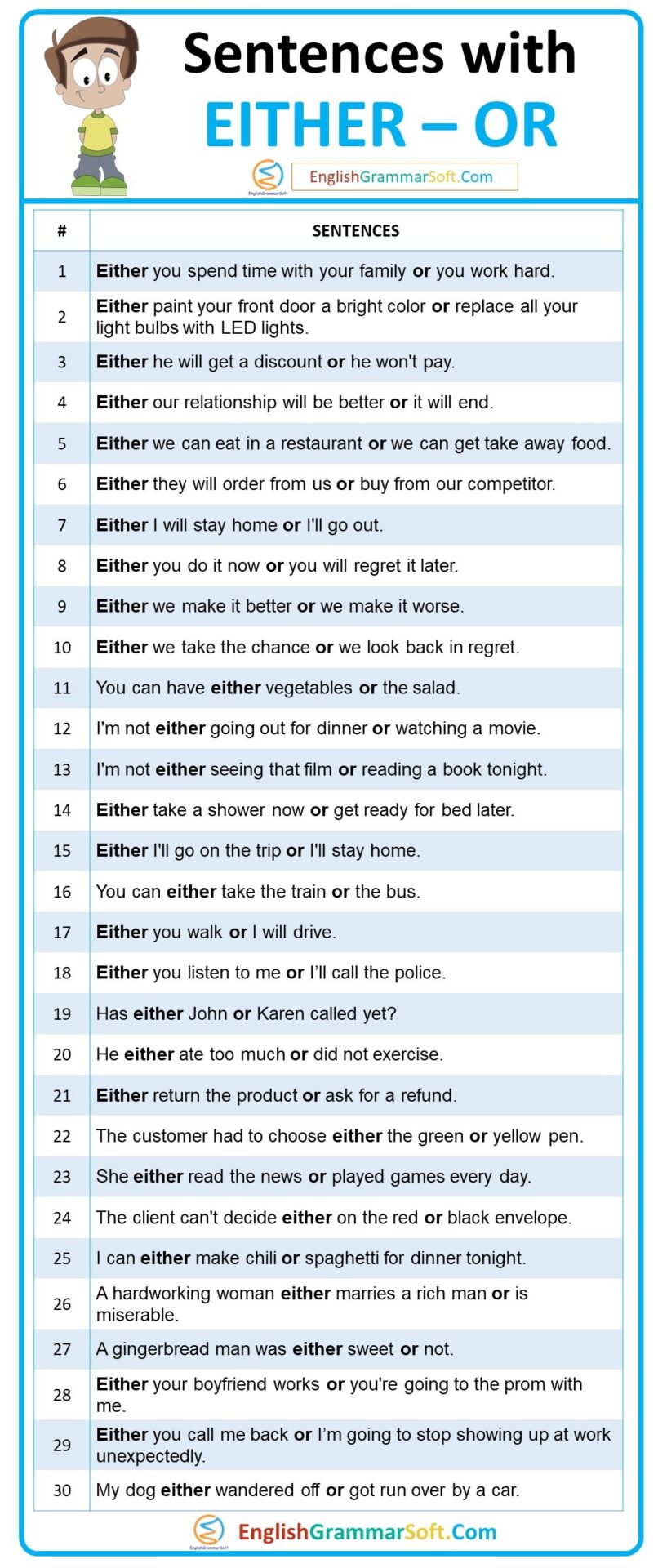
Either or fallacy
One of the most common logical fallacies in our society is the either-or fallacy. This fallacy occurs when we fail to acknowledge that there are other options available, and instead believe only two choices exist. The fallacy is the opposite, where we recognize there are more than two options. The either-or fallacy can be defined as the assumption that two statements are mutually exclusive when in fact, they may both be true. A false dilemma is a form of this fallacy because it assumes only two possibilities exist and ignores any other possible outcomes.
Either or fallacy examples
The problem with this type of thinking is that it ignores any additional factors which may be influencing a particular situation. A good example would be “how many hours do you work per week on average?”
If you think about this as an either-or question (full-time or part-time) then your answer will not include people who have multiple jobs, even though they’re working full-time hours at all of them!
Another example could be one saying “If you go to college for four years then you will have a high-paying job.” If someone does not attend college for four years they are automatically relegated to low-paying jobs? It’s important to understand that there are many different factors that determine how much money one makes.
Read also
